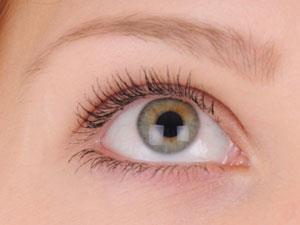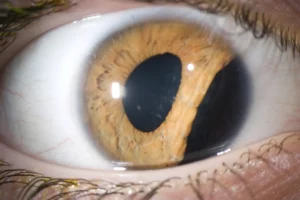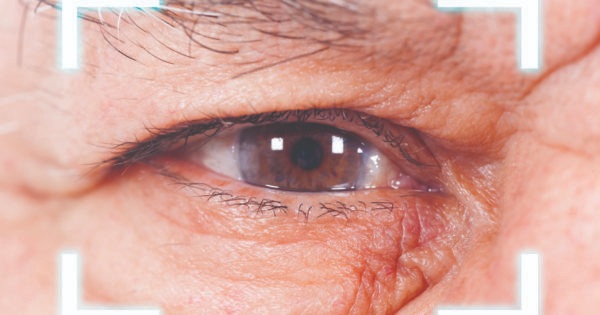If you or someone you know has been diagnosed with a complicated cataract, it’s important to understand what that means. A cataract is caused by intraocular diseases, most often intraocular inflammatory conditions such as anterior, intermediate, or posterior uveitis. In this blog post, we will discuss all of the symptoms of complicated cataracts and how it is treated.
Contents
What Is a Complicated Cataract?
 A complicated cataract is an opacification of the crystalline lens that is harder to diagnose and treat than a typical cataract. It is a cataract caused by IOL diseases, trauma, or previous intraocular surgery, such as a corneal transplant. This type of cataract is accompanied by symptoms and complications that are not present in ordinary cataracts.
A complicated cataract is an opacification of the crystalline lens that is harder to diagnose and treat than a typical cataract. It is a cataract caused by IOL diseases, trauma, or previous intraocular surgery, such as a corneal transplant. This type of cataract is accompanied by symptoms and complications that are not present in ordinary cataracts.
Many people might not be aware that they have a complicated cataract because the symptoms are not as obvious and can come on gradually over time. But it is important to identify and treat a complicated cataract because if left untreated it can lead to vision loss.
How To Identify It?
There are a few signs and symptoms that are indicative of a complicated cataract. These include:
- Blurred vision: It is common for those who have a complicated cataract to experience blurred vision at all distances, be it near or far.
- Cloudy Vision: With a complicated cataract, images may appear “cloudy” or slightly out of focus as the normal age-related changes in the eye try to correct themselves in an unhealthy way.
- Halos: Those with a complicated cataract may also experience halos around bright lights, making driving and other activities at night more difficult.
- Light Sensitivity: Complicated cataracts can make it harder for the eyes to adjust when going from dark environments to bright ones or vice versa. This is accompanied by headaches and eyestrain.
- Double Vision: If a complicated cataract is left untreated, double vision may occur due to the inability of the eyes to focus properly on objects.
- Visual disturbances: Finally, this cataract type can also lead to other visual disturbances such as ghosting, blind spots, and color distortions.
Overall, these are some of the most common signs and symptoms of a complicated cataract. If you find yourself experiencing any of these, it is best to consult your doctor right away and get checked for this condition. It is an important part of any eye health to detect and treat this condition quickly.
What Makes Cataract Surgery Complicated?
This eye condition is marked by the clouding of the lenses in the eye, making it difficult for light to pass through. Complicated cataract cases can include those with other eye diseases or conditions. Such as age-related macular degeneration (AMD), glaucoma, diabetic retinopathy, and corneal scarring or opacities.
It’s important to know that these cases may require different treatment approaches. Such as advanced technology and specialized lenses. They also may take longer to heal and can present more risks than standard cataract surgeries.
In addition, the conditions that make a cataract complicated can also affect the ability of the surgeon to perform a successful surgery. Depending on the severity of your condition, you may need to visit multiple specialists in order to determine the best approach for treating your cataract.
How Is It Diagnosed?
It is important to diagnose the cause of your cataract before deciding on a treatment plan. Your eye doctor will perform a comprehensive eye exam and review your medical history. During this exam, they may use special lenses to inspect the lens for signs of damage or abnormalities.
They may also order imaging tests, such as an ultrasound or CT scan, to get a better view of the affected area. This will help them determine the size, shape, and location of the cataract.
Your doctor may also take measurements to determine how much your vision is affected by the cataract. They can also check for signs of a secondary eye condition that could be making the cataract more complex.
After reviewing your medical history and the results from the tests, your doctor can determine whether you have a complicated cataract and what type of treatment is best for you.
How Can You Treat Complicated Cataracts?
 If you have been diagnosed with a complicated cataract, your doctor will work with you to decide on the right treatment option. The most common treatments for complicated cataracts are:
If you have been diagnosed with a complicated cataract, your doctor will work with you to decide on the right treatment option. The most common treatments for complicated cataracts are:
- Intraocular Lens (IOL) implantation
- Phacoemulsification
IOL implantation involves replacing the cloudy lens with an artificial, clear intraocular lens that helps to improve vision. The process of IOL is fairly straightforward and involves a surgeon making an incision in the eye. And after that, then placing the IOL inside.
Phacoemulsification is a procedure that is used to break up and remove the cloudy lens from your eye. This procedure requires small instruments to be inserted through tiny incisions into the eye. The instrument vibrates at very high frequencies to break up and remove the cloudy lens.
In addition, your doctor may also recommend other options, these include:
- Medications
- Special eye drops
- Laser treatments
Overall, these treatments can help to improve and preserve your vision. It is important to note that the success of these treatments depends on the severity of your cataracts. Your doctor will work with you to find the best treatment option for you.
Conclusion
In conclusion, complicated cataracts might require special attention and care. It is important to discuss with your eye doctor the most suitable treatment for you, depending on the severity of your condition. In some cases, surgery may be necessary in order to correct vision problems caused by a complicated cataract.
However, it is possible to improve vision through lifestyle changes as well as medications that can help to slow the progression of a complicated cataract. Remember, with proper diagnosis and treatment, most individuals can experience improved vision or even complete restoration of their sight.
For more information and guidance, please contact Mantra Care. At MantraCare we have a team of experienced eye surgeons, who will be happy to answer any questions on cataract surgery. Call us at +91-9711116605 for any inquiries.
